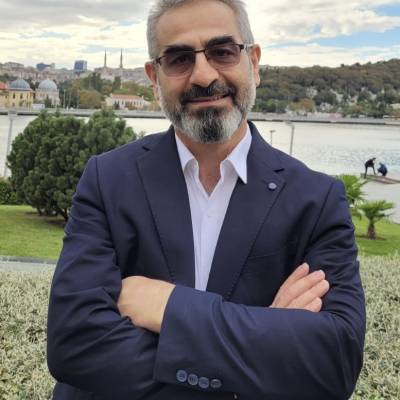
xxx78
İran’a savaş hazırlığı (mı)
Son zamanlarda İran’dan yükselen garip sesleri anlamakta zorlandığım gibi Türkiye’nin Suriye’den sonra İran politikasında da değişim yaşanıyormuş hissine kapılıyordum. Washington’daki etkili bir düşünce üretim merkezinin Barack Obama’yı başkanlığa hazırlama ekibinde de görev yapmış yöneticisinin kaleme aldığı ‘özel’ bilgi notunu okuyana kadar...
Tahran, haklı olarak, kendisine saldırılacağından çekiniyor. ABD’nin bunu tek başına mı, müttefikleriyle birlikte mi yapacağını, yoksa işi İsrail’e mi bırakacağını bilmediği için de, İranlı yetkililerden daha önce hiç duymadığımız türden açıklamalar geliyor...
John Hamre etkili CSIS adlı kuruluşun başkanı. Notunu başında bulunduğu kuruluşun mütevelli heyeti üyeleri için kaleme almış. Notun bütünü “İran’a karşı saflar sıklaştırılıyor, galiba bu defa savaşa doğru gidiyoruz” cümlesiyle özetlenebilir.
Uluslararası Atom Ajansı (IAEA) önceki raporlarından biraz daha eleştirel bir İran Raporu yayınlamıştı geçenlerde; Hamre İsrail’den Washington’u hareketlendirme seferlerinin rapordan sonra arttığını kayda geçirmiş...
Hamre’ye bir asker dostu Libya’da olanların İran’da alarm zilleri çaldırdığını söylemiş. Kaddafi bir zamanlar nükleer silâha sahip olma çabasındaydı; son yıllarda ‘Batı’ya açılma’ politikasının parçası olarak o çabadan vazgeçti. Dostu, “Kaddafi programdan vazgeçtikten birkaç yıl sonra devriliyor; sence bu Tahran’a ne düşündürür?” diye sormuş...
Beş yıl içerisinde bugünküne benzer ‘galiba savaş yakın’ kaygıları iki kez yaşamış Hamre. Ancak her ikisinde de Washington, İsrail’e, “İran’a saldırırsanız, bizden destek alamazsınız” demiş... Şu sırada İran’ın nükleer silâh ürettiğine dair kanıt yok, Amerikan istihbaratı da aksini iddia edemiyor. Buna karşılık, İsrail veya ABD tarafından saldırıya uğradığı taktirde, İran’ın hemen o gün nükleer silâh üretimine başlayacağından hiç değilse Hamre emin...
Saddam’ın elinde ‘kitle imha silâhları’ bulunduğu iddiası yetmişti Irak’ı işgale; iddianın boş olduğu anlaşıldı, ama Irak işgal edildikten sonra...
CSIS Başkanı Hamre İran’a karşı üç farklı seçenek bulunduğunun altını çizmiş bilgi notunda: 1. İran’ı işgal edip nükleer tesislerini yok etmek... 2. Bombalamak... 3. Yaptırımlar... İlkini imkânsız görüyor; ikincisini zayiat fazla olacağı için tehlikeli buluyor; üçüncüsünün ise işe yaramadığını söylüyor.
Yönetimden dostlarıyla konuşmuş, Washington’da etrafı dinlemiş, neredeyse herkes önümüzdeki altı ay içerisinde İsrail’in İran’a saldıracağı kanaatindeymiş... Gelişmelerden haberdar olan ABD’nin bölgedeki dostları da bu yüzden İran üzerindeki baskılarını artırmışlar. “Perde gerisinde alternatif yaklaşımlar üzerinde çalışılıyor; bir şeyler olacak, ama ne olacağını henüz bilmiyorum” diyor Hamre... Bir şeyi daha: “Saldırı olacağını öngörmüyorum; çünkü en az iki kez daha buna benzer dönemlerden geçtik; fakat şimdiki biraz farklı...”
İlgisinin esas sebebini satır aralarına gizlemiş: Petrol... “Saldırıya uğrayan İran Körfez’den petrol geçişini durdurur mu?” diye soruyor. Aklında zaten yüksek olan petrol fiyatlarının böyle bir durumda daha da artacağı endişesi var.
Benim endişem ise farklı: Bizi de bu girdabın içine çekerler mi?
.................
CSIS MEMORANDUM
To: CSIS Board of Trustees, Advisers, and Friends
From: John J. Hamre
Date: December 2, 2011 (Number 355. Two pages.)
Re: War Clouds on the Horizon
There has been a discernible change in Washington over the past several weeks in the feeling that war with Iran is now on the not-so-distant horizon. In part, this new talk was triggered by the report of the International Atomic Energy Agency (IAEA). The IAEA issued a report suggesting that Iran has sustained its nuclear weapons program. Urgent emissaries from Israel have increased their visits to Washington, calling on Administration offices and friendly politicians to say the time has come.
Administration officials insist that there is nothing really new in the IAEA report. U.S. intelligence elements have consistently reported a steady Iranian effort to build its nuclear industry. And a nuclear industry is the foundation for a weapons program. One very senior friend in military circles told me that the war in Libya sent a chilling message to Tehran. For all his weirdness, Col. Qaddafi had once sustained an active nuclear weapons program and then abandoned it as a peace offering to the world to re-establish normal relations. “What does it say to Tehran,” my friend argued, “when Qaddafi abandons his nuclear weapons program and within a few years he is overthrown?”
The central conundrum facing the Obama Administration (as it did the Bush Administration) is that Iran is building the foundation for a nuclear weapons program by building a commercial nuclear industry. As a signatory to the Nuclear Non-Proliferation Treaty, Iran has the right to a commercial nuclear program, but by signing the treaty it foreswore any interest in a weapons program. To reconcile the inherent tension in the treaty, the world insists on intrusive inspections by the IAEA, which give heightened credibility and urgency to the IAEA report.
So what happens without a smoking gun, but strong suspicions of illicit activity? Presently the world is sanctioning Iran with increasingly onerous economic sanctions for its failure to offer complete transparency. But is that stopping a covert weapons program? Israel envoys say no. U.S. intelligence analysts say, “We are not sure.” Are we coming to a point of no return?
This is where the war clouds appear on the horizon. I have seen similar episodes on two previous occasions during the past five years. The fear of impending “irreversibility” led twice before to a point where war seemed quite plausible.
In each instance, the United States told friends in Israel that we would not support them if they attacked Iran. U.S. intelligence forces honestly do not know conclusively if a weapons program is underway, although there is sufficient hard, as well as circumstantial, evidence to cause great concern. But Iran surely will start a nuclear bomb the day after they are attacked, whether it is by Israeli or American air forces.
There are only three practical policy choices. The first is to invade Iran and dismantle physically the nuclear industry. No one is proposing that. We are just getting out of Iraq and have our hands full in Afghanistan. There is no stomach for a ground war in Iran. The second option is bombing. Here the problem is that the Iranians have a highly distributed industrial complex with no obvious choke points. And many of the installations are in cities where the risk of collateral damage is high. So a bombing campaign would likely be only provisional and inconclusive. Additionally, it would surely unite the public around the effort to become a nuclear-weapon state to prevent further attacks. The third option is sanctions, which is the path we have been on under the Bush and Obama Administrations.
Israel tolerated America’s position so long as it concluded there was still time and America was committed to stopping Iran’s nuclear program. But it now appears that time is running out. One senior government friend told me he thought an Israeli attack on Iran in the next six months was “likely.” I have sampled sentiments around town for several days and found a growing consensus on this point.
This has energized other friends to find yet more ways to increase pressure on Iran, knowing that bombing would dramatically complicate and exacerbate problems in the region. Behind the scenes, people are quietly working on alternative approaches. Something will happen, but at this point I don’t know what.
A friend asked me, “Would Iran shut down oil shipments coming out of the Persian Gulf” if they are attacked? Honestly, I don’t know. That is harder than you think. While the shipping lane through the Strait of Hormuz is only two miles wide, America has long anticipated this threat and has resources in place that can be rapidly deployed to deal with that problem. Yet it would certainly spike energy prices for some period, sending another shuddering jolt through the global economy. The longer-term Iranian response will be less predictable. And global political reactions will also be dramatic, if not entirely predictable at this point.
I am not predicting the attack. We have been down this road at least twice before. But this feels different.
I always value your feedback. Please drop me a note at JHamre@csis.org












